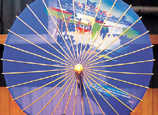
Is Microsoft Corp's tablet Surface good enough to challenge the iPad? It is an absurd question if you simply compare sales volumes.
Apple Inc claimed it sold 14 million iPads in the third quarter of last year. Microsoft has always been hesitant to disclose sales information about its highly anticipated gadget.
The most optimistic estimate given by analysts is Microsoft sold 1.3 million units in the fourth quarter of 2012, a tenth of Apple's figures.
"I would be surprised to see it much above that," IHS iSuppli analyst Rhoda Alexander told United States technology website cnet.com in December.
Google Inc's tablet Nexus 7, which hit the market in June, is selling at close to 1 million units a month.
For Surface, a newcomer targeting high-end customers, a few more than 1 million is not a bad effort.
When Microsoft made the decision to make tablets, Apple had already rolled out three generations of iPads and dominated the global market.
Apple took 55 percent of global shipments for tablets in the third quarter of 2012, said consultant firm ABI Research.
In addition, the entry-level price for the Nexus 7 is less than $200, while Surface starts at $499. Given the fact that Nexus 7 targets lower-end buyers and was only able to sell 500,000 units a month initially, 1 million in sales volume for a much higher priced tablet is widely regarded as acceptable.
Ambitiously declaring war on Apple and Google in the tablet market, Microsoft has its strategy clearly planned.
For Microsoft - a software company first and foremost - the true meaning for Surface is the operating system on which the device runs. Windows 8, a cross-platform operating system, is the real weapon the company is counting on to challenge Apple and facilitate its entry into the era of mobile Internet.
It has taken a long time for the company to enter this industry - some would say too long. Now the Internet pioneer has to play catch-up as the industry embraces mobile technology.
In a market in which Apple's iOS and Google's Android dominate, the only option left for Microsoft was to join hands with as many mobile device manufacturers as it could to push its Windows 8-based system.
Hardware makers such as Acer Inc, KUPA, Lenovo Group and Samsung Electronics Co have released different tiers of Windows 8 tablets with prices ranging from around 2,000 yuan ($320) to more than 10,000 yuan.
Surface doesn't have to be as good as iPad if Microsoft has a strong mercenary army to compete with Apple. In the meantime, Microsoft has to devote itself to cultivating the fragile ecosystem and improve the compatibility of its system.
It remains too early to tell if Microsoft's many-against-one strategy will help the company grab a prominent market share in the sector, but investors are surely pleased to see a plan has been formulated and is being realized. The company said more than 1,500 devices will be running Windows 8 in the coming months. But let's not forget it is the giant Apple that the company is challenging, not to mention the equally aggressive and powerful Google not far behind.
Looking forward, it is almost certain the battle among operating systems will get most attention in the mobile sector. For Microsoft, the most important thing is to keep Windows 8 in the game.
















 Beijing style: Duck, opera, fog and cough...
Beijing style: Duck, opera, fog and cough...


![]()
